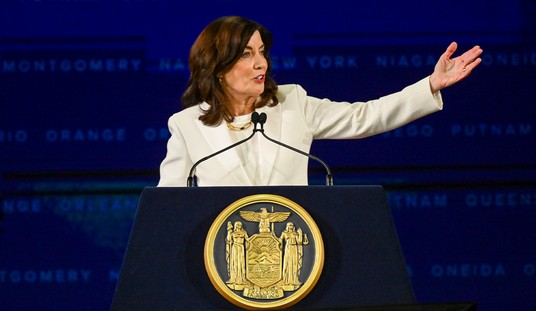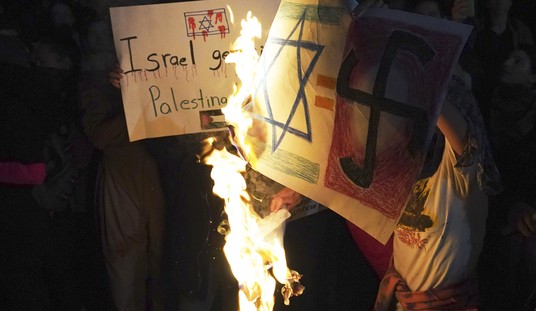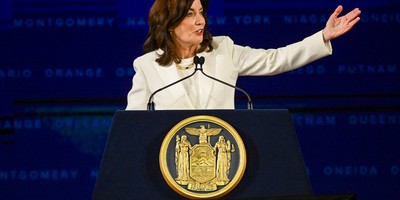Fired FBI Director James Comey will testify before the Senate Intelligence Committee Thursday morning, having been cleared by Special Counsel Robert Mueller -- a fellow former FBI Director -- to do so. After weeks of President Trump and his team appearing intent to dream up creative new ways of behaving suspiciously and acting guilty, the White House finally made a smart call on this front by declining to invoke executive privilege in an effort to block Comey's appearance. That would have been a strategically harmful lose-lose proposition, and they were right to avoid it.
CNN reported in late May that a source close to Comey says he plans to testify that he "now believes that President Donald Trump was trying to influence his judgment about the Russia probe," at a meeting recorded in a widely-discussed February memo -- but he is not necessarily convinced the president's pressure amounted to an unlawful act such as obstruction of justice. As Washington steels itself for another barrage of nationally-televised, high-stakes hearings starring Mr. Comey, there are a number of questions that come to mind as citizens attempt to assess the seriousness of the president's alleged February overtures on behalf of his sacked National Security Adviser, Michael Flynn -- as well as other related matters:
(1) The New York Times reported last month that you wrote a memo in February 2017 detailing the contents of a series of conversations you had with the president. Did you author such memos? The Times story claims that you chronicled the president expressing his preference that you, and by extension the Bureau, drop an ongoing investigation into Mr. Flynn. "I hope you can let this go," your account allegedly quotes him as saying. Is that what you wrote, and is that what he said?
(2) Did you understand the president to be referring to the (separate) criminal probe into Mr. Flynn, the broader Russia investigation, or both?
(3) Is it true, as reported by various media outlets, that prior to broaching the subject of the Flynn affair with you, the president asked others present -- including the vice president -- to leave the room? Did this request strike you as an attempt at secrecy, or a less sinister effort to facilitate a so-called "heart-to-heart"?
(4) How would you characterize the president's tone at the time, and how did you interpret his remarks to you? Did you believe he was ordering you to shut down the investigation? Or was his approach closer to friendly cajoling, as in, 'gosh, I'd be great if this mess doesn't bring down my friend, who's really a good guy'? In terms of ethics and the law, does that distinction matter?
(5) Regardless of the context and your instincts about the president's intent, did you contemporaneously believe that his appeals were a form of inappropriate pressure? If you believed the president was acting inappropriately, why did you not 'blow the whistle' -- or at least share your concerns with Congress -- immediately?
Recommended
(6) On May 3rd, under questioning from Sen. Hirono, you swore under oath that at no time in your experience had high-ranking Justice Department officials tried to stop an FBI investigation for politically questionable or suspicious reasons. Do you stand by that testimony? Sen. Hirono's question made specific reference to the DOJ, and not necessarily the White House or the president. But given the sensitivity of the Russia situation and heightened public scrutiny of that investigation, do you think it would have been a complete and honest answer to narrowly deny the existence of unseemly political pressure on an FBI inquiry from one powerful source, when you had in fact experienced pressure of that nature from the President of the United States?
(7) The aforementioned New York Times article also says that you shared the memo about your February encounter with a small circle of "senior FBI officials." Was one of those officials (current acting FBI Director) Andrew McCabe? If not, why not? If so, Mr. McCabe testified on the subject of improper pressure on May 11th, stating for the record that "there has been no effort to impede our investigation to date." Was he telling the truth, based on what you revealed to him months earlier?
(8) At a different meeting in January of this year, did the president ask for your "loyalty" in your professional capacity? If so, how did you respond? How did you construe the nature of request at the time?
(9) Did your abrupt dismissal as FBI Director on May 9th change your view or interpretation of previous conversations and interactions with the president? Have you reconsidered whether relatively innocent-seeming -- even if inappropriate -- discussions or comments may actually have been more serious than you'd understood them to be in the moment?
(10) In light of your January and February private meetings, do you believe the president was attempting to obstruct justice? If so, do you have any proof to that end -- beyond your shift in intuition, perhaps based on your termination?
(11) You have previously declined to comment on the status or existence of an FBI investigation into a string of national security leaks. Earlier this week, a young government contractor was arrested for her role in the unauthorized, criminal dissemination of highly classified material to the news media. With this new development now out in the open, can you expand upon your prior testimony as to whether or not the Bureau is (or was) investigating these leaks? Even if you're unable to offer a confirmation or denial on that front, is it your professional opinion that the prevention of damaging leaks, and the punishment of leakers, ought to be a national security priority?
(12) Former presidential nominee Hillary Clinton stated last week that her email scandal -- which involved what you termed "extremely careless" and "negligent" handling of thousands of pieces of classified material -- was a "nothing burger." Do you agree that her conduct wasn't a serious matter? In your vast experience as a law enforcement official, do you believe an elite policymaker's openly cavalier attitude about safeguarding state secrets can have an effect on others' behavior and adherence to official policy?
I suspect that Senators will cover much of this territory on Thursday, especially considering that members of both parties have expressed puzzlement and curiosity about the theme of Question Five above. As far as predictions go, I'm inclined to agree with this assessment from former White House Press Secretary Ari Fleischer on how things might play out:
Prediction:Comey to say similar things re Trump he said re Hillary. It was "inappropriate", "border line", "highly unusual" but not a crime.
— Ari Fleischer (@AriFleischer) June 5, 2017
Alas, intent is (ahem) difficult to prove, right? Then again, Comey has been known to keep an explosive political allegation very close to the vest prior to dropping it in public testimony -- one of the many reasons this week's hearings will be must-watch television.

























Join the conversation as a VIP Member